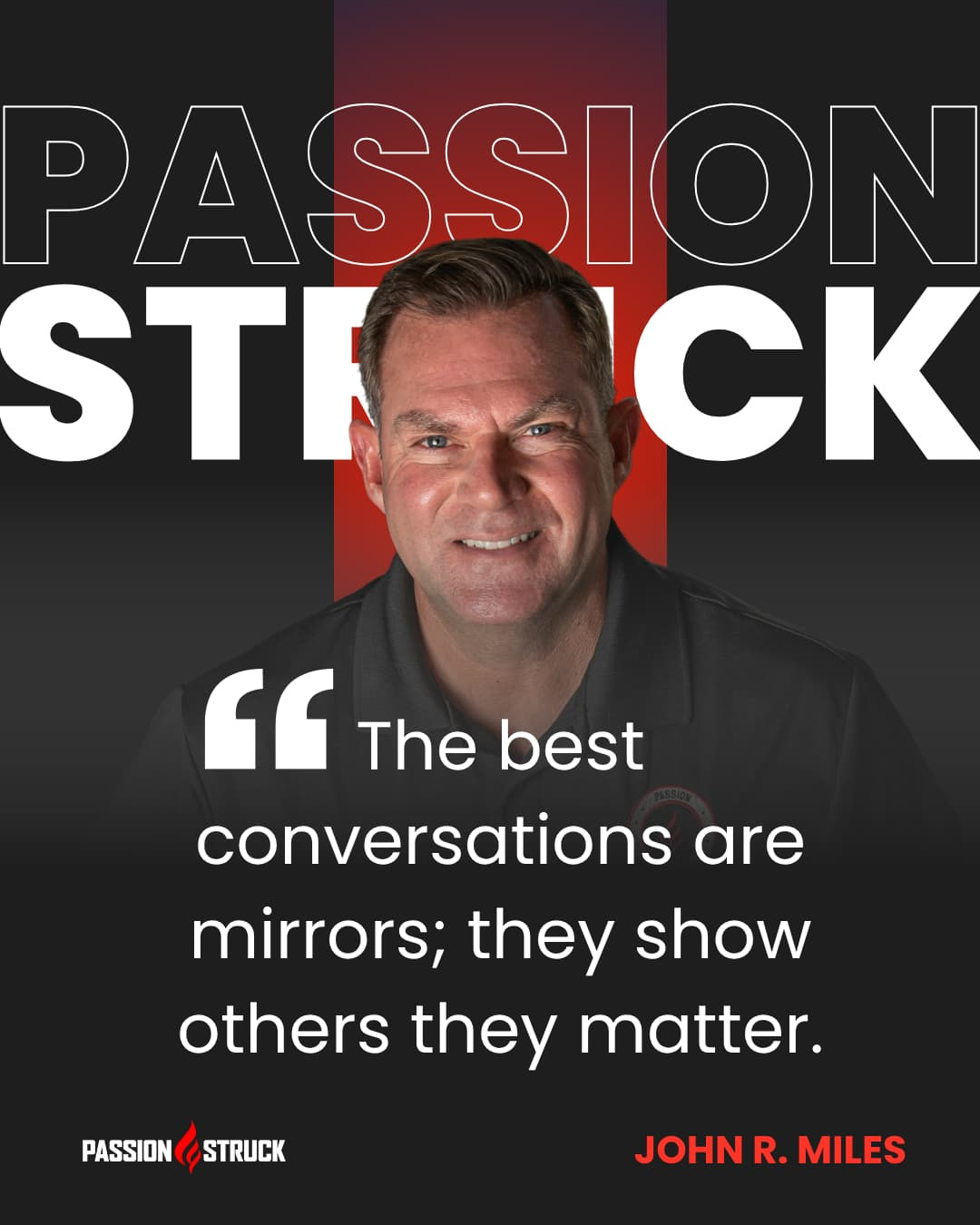The Power of Language in Leadership
How Language Builds Trust, Shapes Identity, and Screws Us Without Warning
Let me ask you something: What if the words you speak aren’t just things you say, but tools that quietly shape every relationship, every decision, and every part of your identity—without you realizing it?
Because they do.
A single sentence can start a war. Or a marriage. Or a breakdown. Or a career. (Usually not all at once, unless it’s Twitter.)
We like to think we choose our words. But most of the time, they’re choosing us—based on habits, social scripts, and whatever crap we absorbed from our bosses, parents, or that leadership podcast we played on 1.5x speed and forgot.
The problem? Language doesn’t just communicate. It creates. It builds trust. It builds fear. It builds beliefs. And once those beliefs are in place, they become the lens through which we see everything else.
How One Sentence Changed Everything
When I was seventeen, everything looked pretty set. A scholarship to the University of Michigan. The school I dreamed of attending since I was a young boy, now within reach. Family legacy. Predictable path. Just follow the map.
Then the Naval Academy came knocking. A different map. One with more sacrifice, structure, and — let’s be honest — suffering.
I sat down with my grandfather, a Michigan alum and Army vet. I laid out my options.
He listened. Didn’t flinch. Then said nine words that detonated the entire script:
“Choose a life of purpose over a path of privilege.”
That one sentence didn’t force me to do anything. It invited me to become someone.
Want to Go Deeper?
If this story hit something in you—if you’ve ever wondered how the words you use quietly shape trust, culture, and the way people see you—this is where we start to unpack it.
Join The Ignited Life, where we explore how mattering—the need to feel seen, valued, and impactful—shapes our choices, relationships, and capacity to flourish.
Deep-dive workbooks for each Passion Struck episode
Behind-the-scenes frameworks from my writing and interviews
Weekly prompts to help you lead, love, and live more intentionally
Ad-free episodes from the Passion Struck podcast
👉 Join The Ignited Life to unlock the rest of this post — and access every toolkit in this series, The Forces That Shape Us.
Language Isn’t Just Communication. It’s Architecture.
The brain is lazy. It doesn’t see the world as it is. It sees what it expects to see.
And expectations are built from narratives. And narratives are built from words.
Say “I have to do this,” and you’ve already positioned yourself as the victim. Say “I choose to do this,” and you’re now the author.
Tiny change. Massive shift.
Language shapes trust —and trust shapes behavior. That’s why the best leaders aren’t the loudest voices in the room. They’re the ones who know when to ask instead of tell, when to listen instead of lead, and when to use language that empowers choice rather than enforcing it.—John R. Miles
We make decisions based on the stories we believe. And those stories live in the language we default to. The wrong words make smart people feel trapped. The right words make scary choices feel meaningful.
This isn’t just semantics.
It’s identity construction.
The Hidden Power of How You Speak
Most people don’t notice how much of their language is inherited from their parents, bosses, teachers, and media diets. It sneaks into your internal monologue. It becomes how you talk to yourself, even when no one’s listening.
And that internal voice? It sets the tone for everything else.
You say, “I’m bad at conflict,” and suddenly every disagreement confirms it.
You tell yourself, “I’m not creative,” and you stop trying new ideas.
You think, “I’m stuck,” and stop looking for exits.
None of that was true. It was just a poorly written script you never updated.
Why the Language of Leadership Creates Culture
Language creates culture. In teams. In families. In companies. In your own mind.
If you’re leading — anything — your words are doing more than relaying info. They’re shaping the emotional weather of the room.
You say, “We need to get this done.” People feel pressure.
You say, “What’s the best way we can do this together?” People feel engaged.
Same outcome. Different experience.
“The right words invite vulnerability. And vulnerability, not authority, is the currency of real connection.”—John Miles
Most leaders don’t realize they’re using control disguised as clarity. They think they’re being efficient. What they’re really doing is squeezing out trust.
If you want buy-in, change the way you frame the conversation.
The Toolkit: Speak Like It Matters (Because It Does)
Here are five shifts you can make today:
Pause before persuasion. Ask yourself: Am I informing or influencing?
Name what’s missing. People can’t make wise decisions when key truths are invisible.
Mirror, then respond. Show people you understand them before adding your take.
Default to transparency. Certainty is overrated. People can handle the truth.
Audit your phrasing. Every “should” and “have to” is a hidden leash.
Final Thought
Most of your life is built on invisible patterns. Language is one of the most powerful.
Change your language, and you’ll change the way you:
Make decisions
Lead others
Handle pressure
Talk to yourself
Language doesn’t just express who you are. It becomes who you are.
So the next time you open your mouth, or catch yourself mid-thought, ask:
Is this how the future me would speak?
If not, rewrite the sentence. Then live it.
Listen to the full Ad-Free episode below.




